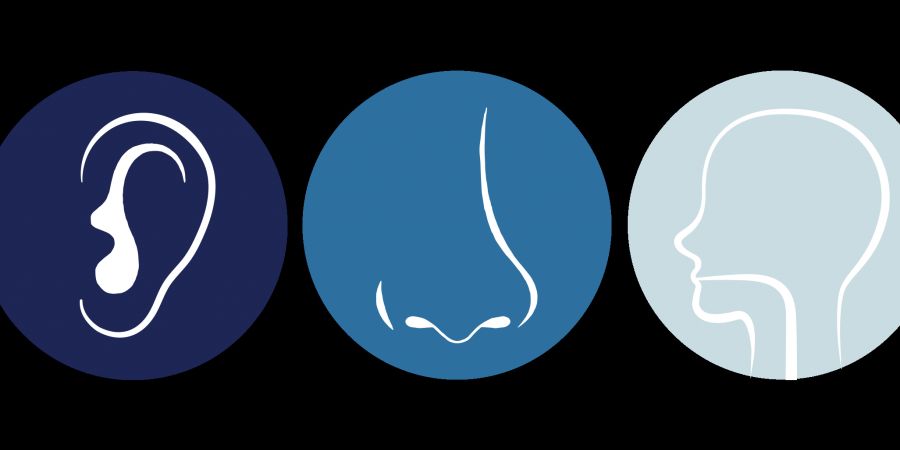

EYE The eye is the organ of sight. The two eyeballs, protected within bony sockets called orbits and on the outside by the eyelids, eyebrows, and tear film, are directly connected tp the brain by the optic nerves. each eye is moved by six muscles, which are attached around the eyeball. Light rays entering the eye through the pupil are focused by the cornea and lens to from an image on the retina. The retina contains millions of light sensitive cells, called rods and cones, which convert the image into a pattern of nerve impulses. These impulses are transmitted along the optic nerve to the brain. Information from the two optic nerves is processed in the brain to produce a single coordinated image. EAR The ear is the organ of hearing and balance. The outer ear consists of flap called the auricle or pinna and the auditory canal. The main functional parts- the middle and inner ears- are enclosed within the skull. The middle ear consists of three tiny bones, known as auditory OSSICLES, and the eustachian tube, which links the ear the back of the nose. The inner ear consists of the spiral-shaped cochlea, and also the semicircular canals and the vestibule, which are the organs of balance. sound waves entering the ear travel through the auditory canal to the tympanic membrane(eardrum), where they are converted to vibrations that are transmitted via the OSSICLES to the cochlea. here into electrical nerve signals to be interpreted by the brain. NOSE, MOUTH, AND THROAT With every breath, air passes through the nasal cavity down the pharynx(throat), larynx('voice box), and trachea (windpipe) to the lungs. The nasal cavity warms and moistens air, and the tiny layers in its lining protect the airway against damage by foreign bodies . During swallowing, the tongue moves up and back, the larynx rises, the epiglottis closes off the entrance to the trachea, and the soft palate separated the nasal cavity from the pharynx. saliva, secreted from three pairs of salivary glands, lubricated food to make swallowing easier; it also begins the chemical breakdown of food, and smell are closely linked. both depend on the detection of dissolved molecules by sensory receptors in the olfactory nerve ending of the nose and in the taste bud of the tongue. TEETH The 20 primary teeth(also called deciduous or milk teeth) usually begin to erupt when a baby is about six months old. they start to be replaced by the permanent teeth when the child is about six years old. by the age of 20, most adults have full set of 32 teeth although the third molars(commonly called wisdom teeth) may never shape to the face, their main function is the chewing of food. incisors and canines shear and tear the food into pieces; premolars and molars crush and grind it further. although tooth enamel is the hardest substance in the body, it tends to be eroded and destroyed by acid produced in the mouth during the breakdown of food


